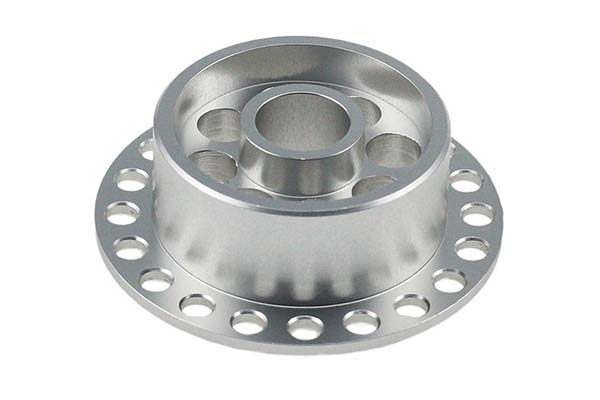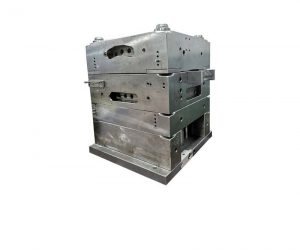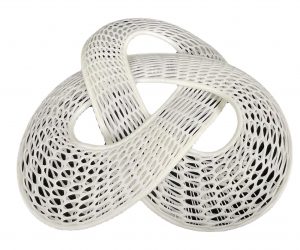Introducción
In the dynamic landscape of product development, finding the right prototype manufacturers is crucial. This is especially true when considering Chinese prototype manufacturers, who have been making significant strides in the global market. But the question on many minds is, "Are Chinese prototype manufacturers the right choice for your project?" Yigu Technology aims to provide a comprehensive exploration of this topic, equipping you with the knowledge to make an informed decision.
Product development is a complex process, and prototyping is a critical phase. It serves as a bridge between the concept and the final product, allowing you to test, refine, and validate your ideas. A well - made prototype can help you identify design flaws, improve functionality, and enhance the overall user experience. It can also be a powerful tool for marketing, demonstrating the viability of your product to potential investors, partners, or customers.
Chinese prototype manufacturers Yigu Technology have emerged as major players in the global manufacturing arena. The "Made in China" label has evolved from being associated solely with low - cost production to representing a wide range of capabilities, from high - volume manufacturing to high - precision prototyping. In fact, according to market research, China's manufacturing industry has been growing steadily, with the prototyping sector contributing significantly to its growth.
Advantages of Chinese Prototype Manufacturers
Cost - effectiveness
One of the most significant advantages of Chinese prototype manufacturers is their cost - effectiveness. Cost is a crucial factor in any product development project, and Chinese manufacturers often offer more affordable solutions. For example, a simple plastic prototype that might cost \(500 - \)1000 in the United States or Europe could be produced in China for \(200 - \)500, depending on the complexity. This cost difference is mainly due to lower labor costs in China, as well as the availability of a vast supply chain network that reduces material procurement costs.
Here is a simple cost comparison Yigu Technology table for a medium - complexity electronic prototype (volume of 10 units):
| Region | Estimated Cost (USD) |
| China | \(3000 - \)5000 |
| Europe | \(8000 - \)12000 |
| North America | \(7000 - \)10000 |
The cost - effectiveness of Chinese prototype manufacturers does not mean sacrificing quality. They have mastered the art of providing high - value prototypes at a reasonable price, making them an attractive option for startups and small - to - medium - sized enterprises (SMEs) with budget constraints.
Wide Range of Capabilities
Chinese prototype manufacturers offer a wide range of capabilities, making them suitable for various industries and product types. In terms of manufacturing processes, they are proficient in 3D printing, CNC machining, injection molding, vacuum casting, and more. For instance, in the field of 3D printing, they can work with a variety of materials including plastics, metals, and even some composite materials.
When it comes to material selection, the options are extensive. Whether you need common plastics like ABS, PLA, or more specialized materials such as high - temperature resistant PEEK for aerospace applications, Chinese manufacturers can source and work with them. They also have the ability to handle different product size ranges, from tiny micro - components for electronics to large - scale prototypes for automotive or industrial equipment.
In the automotive industry, for example, Chinese manufacturers can produce prototype parts like engine components, interior trims, and exterior body panels. They can use CNC machining for high - precision metal parts and injection molding for plastic components, demonstrating their versatility across different manufacturing techniques and materials.
Fast Turnaround Times
Time is of the essence in product development, and Chinese prototype manufacturers are known for their fast turnaround times. On average, a simple to medium - complexity prototype can be completed in 7 - 14 days in China, compared to 14 - 21 days in some Western countries.
This speed is attributed to several factors. First, the large number of manufacturers in China means there is intense competition, which drives them to optimize their production processes to reduce lead times. Second, the well - developed local supply chain allows for quick procurement of raw materials. For example, if a manufacturer in Shenzhen needs a specific type of electronic component for a prototype, they can source it from one of the many suppliers in the area within a day or two.
In the case of a time - sensitive project for a startup in the United States, a Chinese prototype manufacturer was able to deliver a fully functional prototype within 10 days, beating the estimated 18 - day timeline of a European competitor. This allowed the startup to meet their investor's deadlines and secure further funding for their product development.
How to Choose the Right Chinese Prototype Manufacturer
Research and Shortlisting
Finding the right Chinese prototype manufacturer starts with thorough research. The internet is a powerful tool in this regard. You can start with a simple Google search using keywords like "Chinese prototype manufacturers" along with specific product - related terms. For Yigu Technology example, if you need a prototype for a medical device, search for "Chinese prototype manufacturers for medical devices". This will bring up a list of potential manufacturers, along with their websites, where you can explore their services, capabilities, and previous projects.
Don't underestimate the power of word - of - mouth. Reach out to your professional network, including colleagues, business partners, and industry associations. They may have first - hand experience working with Chinese prototype manufacturers and can provide valuable recommendations and insights. For example, if a fellow entrepreneur in your industry has had a positive experience with a particular manufacturer, their referral can be a great starting point for your search.
Checking Their Experience and Portfolio
Once you have a shortlist of potential manufacturers, the next step is to evaluate their experience and portfolio. A manufacturer's experience can be a strong indicator of their ability to handle your project. Look for manufacturers that have been in the industry for a significant amount of time, as they are likely to have encountered and overcome various challenges in prototype production.
Examine their portfolio carefully. A diverse portfolio with projects similar to yours is a good sign. If you're developing a consumer electronics product, for example, the manufacturer should have experience in producing prototypes for similar devices. Pay attention to the complexity of the projects in their portfolio. If they have successfully completed highly complex prototypes, it demonstrates their technical capabilities and expertise.
You can also ask the manufacturer for case studies or references from previous clients. Contact these references to get an understanding of the manufacturer's performance, including their ability to meet deadlines, quality of work, and communication during the project. A satisfied client who is willing to provide a positive reference can give you confidence in the manufacturer's capabilities.
Evaluating Their Manufacturing Capabilities
The manufacturing capabilities of a Chinese prototype manufacturer are crucial. First, assess the equipment they use. State - of - the - art equipment is essential for high - quality and precise prototyping. For CNC machining, modern 5 - axis CNC machines can produce more complex and accurate parts compared to older 3 - axis machines. In 3D printing, manufacturers with the latest multi - material 3D printers can offer greater design flexibility.
The manufacturer's proficiency in different manufacturing processes is also important. They should be able to recommend the most suitable process for your prototype based on factors such as material requirements, design complexity, and cost. For example, if your prototype requires a high - strength, heat - resistant component, the manufacturer should be able to determine whether metal injection molding, CNC machining of a high - performance alloy, or another process is the best option.
Capacity is another factor to consider. If you plan to scale up production in the future, the manufacturer should have the capacity to handle increased volumes. This includes having enough production lines, skilled workers, and storage space to meet your growing needs.
Medidas de control de calidad
Quality control is non - negotiable when choosing a prototype manufacturer. A reliable manufacturer will have a comprehensive quality control system in place. This system should cover every stage of the production process, from raw material inspection to final product testing.
Inquire about their inspection procedures. Do they conduct regular in - process inspections to catch any defects early? What methods do they use for final product testing? For Yigu Technology example, in the production of electronic prototypes, manufacturers should perform functionality testing, environmental testing (such as temperature and humidity testing), and reliability testing.
Ask to see their quality certifications. As mentioned earlier, certifications like ISO 9001 demonstrate a commitment to quality management. For specific industries, such as medical or aerospace, additional certifications like ISO 13485 or AS9100 are important. These certifications are issued after a rigorous audit process, ensuring that the manufacturer meets international quality standards.
You can also request to visit the manufacturer's factory to observe their quality control processes firsthand. This can give you a better understanding of how they maintain quality and the level of attention to detail they apply in their production.
Communication and Customer Service
Effective communication and good customer service are often overlooked but are essential for a successful partnership with a Chinese prototype manufacturer. Language barriers can sometimes be a concern, but many Chinese manufacturers have English - speaking staff who can communicate clearly with international clients.
During your initial interactions, pay attention to how quickly and thoroughly they respond to your inquiries. A manufacturer that values your business will be prompt in answering your questions, providing detailed information, and addressing any concerns you may have.
Good communication also extends to the project management phase. The manufacturer should be able to provide regular updates on the progress of your prototype, using tools like project management software or regular email reports. They should also be open to feedback and willing to make adjustments based on your input.
Customer service after the prototype is delivered is equally important. If there are any issues with the prototype, the manufacturer should be responsive and work with you to resolve them in a timely manner. This could involve providing replacement parts, making modifications, or offering technical support.
Conclusión
Summarizing the Key Points
In Yigu Technology conclusion, choosing Chinese prototype manufacturers can offer numerous advantages for your product development projects. Their cost - effectiveness, with cost savings of up to 50% - 70% compared to some Western counterparts for certain prototypes, makes them an attractive option, especially for budget - conscious businesses. This cost - effectiveness doesn't come at the expense of quality, as they adhere to high - quality standards, with a significant number holding international certifications.
The wide range of capabilities of Chinese prototype manufacturers is another major plus. Whether it's working with different manufacturing processes like 3D printing, CNC machining, or injection molding, or handling a diverse set of materials from common plastics to high - performance alloys, they can meet the demands of various industries, from consumer electronics to aerospace.
Fast turnaround times, often 7 - 14 days for simple to medium - complexity prototypes, give you a competitive edge in the market by allowing you to quickly iterate on your designs and bring products to market faster.


